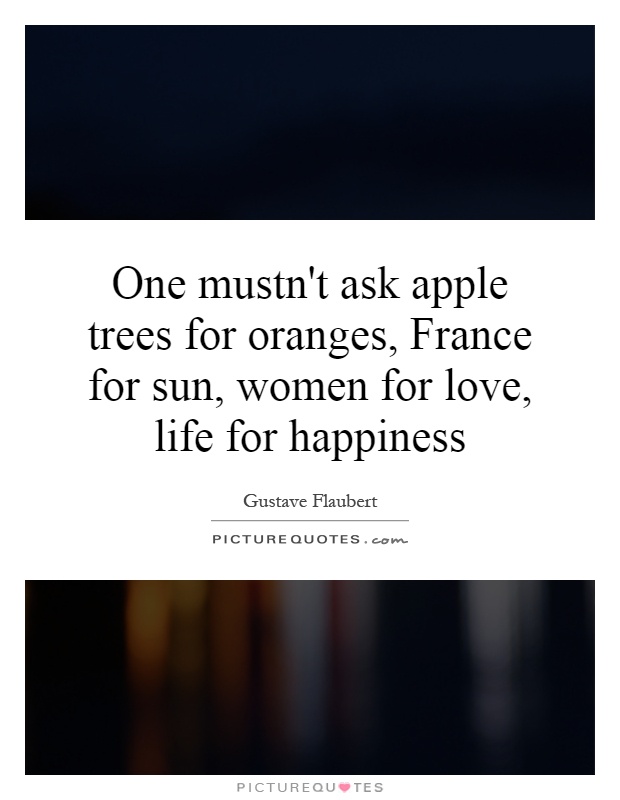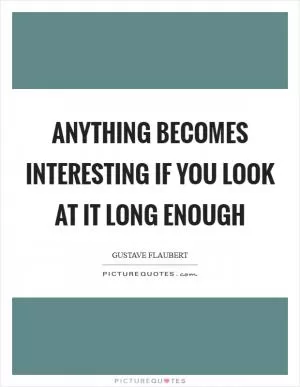One mustn't ask apple trees for oranges, France for sun, women for love, life for happiness

One mustn't ask apple trees for oranges, France for sun, women for love, life for happiness
Gustave Flaubert, a renowned French novelist known for his meticulous attention to detail and realistic portrayal of human emotions, once famously said, "One mustn't ask apple trees for oranges, France for sun, women for love, life for happiness." This quote encapsulates Flaubert's belief in the importance of accepting things as they are, rather than constantly seeking what is unattainable or unrealistic.Flaubert's works often explore the complexities of human relationships and the struggles of individuals to find meaning and fulfillment in their lives. In his novel "Madame Bovary," Flaubert tells the story of Emma Bovary, a woman who becomes disillusioned with her mundane life and seeks happiness and excitement through extramarital affairs and material possessions. However, Emma's quest for love and happiness ultimately leads to her downfall, as she is unable to find true fulfillment in her pursuits.
Similarly, Flaubert's quote can be interpreted as a caution against seeking happiness in external sources or expecting others to fulfill our desires. Just as one cannot expect an apple tree to produce oranges, one cannot rely on external circumstances or other people to provide us with the happiness and love we seek. True happiness, according to Flaubert, comes from within and is not dependent on external factors.
Flaubert's emphasis on accepting reality as it is also reflects his belief in the importance of living authentically and embracing the present moment. By acknowledging the limitations of our desires and expectations, we can free ourselves from the constant pursuit of unattainable goals and find contentment in the here and now.












 Friendship Quotes
Friendship Quotes Love Quotes
Love Quotes Life Quotes
Life Quotes Funny Quotes
Funny Quotes Motivational Quotes
Motivational Quotes Inspirational Quotes
Inspirational Quotes